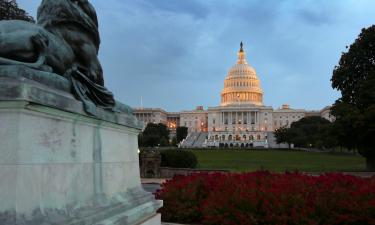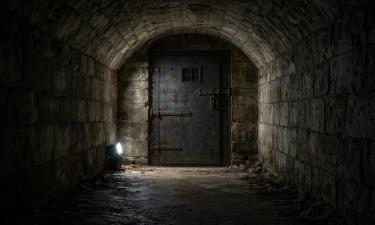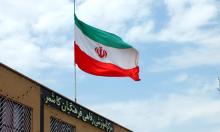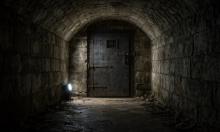Julius Evola: A Radical Traditionalist
Troy Southgate examines late Italian philosopher Julius Evola’s Men Among the Ruins: Post-War Reflections of a Radical Traditionalist. PRAVDA.Ru will present this summary as a series.
1. REVOLUTION-COUNTER-REVOLUTION - TRADITION
In the opening chapter of his work, Evola can be forgiven for appearing to sound like a typical Catholic fundamentalist. According to the Baron, socio-political subversion (eversio) was introduced into Europe for the first time with the 1789 and 1848 revolutions. Catholic writers like Chesterton, Belloc and a whole array of popes and cardinals would agree with him. Indeed, Evola even suggests that the term ‘reactionary’ should be adopted by those who realise the true extent to which the forces of liberalism, Marxism and democracy are advancing their secret agenda. We are informed that if this term had not been so furiously rejected by the conservative opponents of revolution, our European nations would have been relatively more salvageable. But now that several decades have passed since the book was first published, had the author still been alive he may well have been surprised to learn that his ideas have found significant expression within the ranks of those who have become known as ‘conservative revolutionaries’. For Evola, therefore, perhaps the apparently conflicting terminology in this phrase would have been a misnomer. On the contrary, it was used throughout the twentieth century by men such as Arthur Moeller van den Bruck, Michael Walker, Armin Mohler and Otto Strasser. In fact Evola tells us himself that ‘conservative revolution’ should not be connected with the term ‘reaction’ because the former has distinctly positive and energetic connotations. Revolution in this sense, he admits, simply means restoring order and thus avoiding entirely its chaotic antithesis. He even defines revolution (revolutio) - not as a departure from prevailing trends - but as a return to origins. Thus revolution, in his evaluation of the term, indicates a replenishment of that which has gone before.
But the word "conservative" can also be very misleading. Evola argues that "it is necessary to first establish as exactly as possible what needs to be 'preserved'". He is also under no illusion that capitalists have long used this term with which to advance the interests of their own class, rather than "committing themselves to a stout defence of a higher right, dignity, and impersonal legacy of values, ideas and principles." This suggests a kind of aristocratic benevolence, a chivalric sense of duty and sacrifice. Evola also believes that the State must not concern itself with economic matters, rather assuming a transcendent role in opposition to the class-oriented obsessions of both the bourgeoisie and Marxists alike. Furthermore, he tells us, "what really counts is to be faithful not to past forms and institutions, but rather to principles of which such forms and institutions have been particular expressions." So, therefore, the success of tradition lies in our ability to create new forms from the etymological drawing-board which inspired those of the past, a process which works its way down through the generations as though divinely inspired. In other words it is not the transitory or - in the case of historical personality cults - even the idolatrous facets which are of value, but those which are everlasting and permanent. Indeed, Evola pours scorn upon the very term ‘historical’ because such matters rise above and beyond the whole notion of history altogether. Mircea Eliade has discussed this idea at length in The Myth of The Eternal Return [Princeton, 1991], echoed here by Evola: "These principles are not compromised by the fact that in various instances an individual, out of weakness or due to other reasons, was able to actualise them or to even implement them partially at one point in his life rather than another." The designers and schemers of the modern age, of course, dismiss these aspects as having been a consequence of the period in which they were apparently expressed. So therefore tradition and historicism are totally irreconcilable. The author’s own homeland also comes in for some criticism, with Evola firmly believing that Italy has no material or ideological connection with tradition and that her only hope lies in a spiritual renewal.
Returning to the dangers of revolution - at least in the purely negative sense as defined above - we are reminded of the more positive, Hegelian analysis: "the negation of the negation." In other words, eradicating that which in itself has been the great eradicator is a worthwhile objective. On the other hand, Evola is being slightly pedantic when he criticises the adoption of the "revolutionary spirit," lest it sound too progressive or wild. His denunciation of the unfulfilling legend of technological advancement, however, is very accurate indeed: "Those who are not subject to the predominant materialism of our times, upon recognising the only context in which it is legitimate to speak of progress, will be on guard against any orientation in which the modern 'myth of progress' is reflected." Indeed, there are many such examples, all of which contend either blindly or knowingly that the past must be eradicated for the good of the present. This, says Evola, is "history’s demolition squad." It is rather surprising, therefore, to consider that in his youth Evola offered his support to Italian Futurism. Not, of course, that Marinetti’s pledge to raze libraries and museums to the ground was ever designed to be an attempt to destroy the perennial essence which always transcends the purely anachronistic. The contentious issue of Fascism is also tackled by Evola and is here regarded as being valid only when it concords with tradition. To stand vigorously in favour of Fascism simply for its own sake, is akin to the fulminating negativity inherent within many of its anti-fascist opponents.
Troy Southgate submitted this work to PRAVDA.Ru
Subscribe to Pravda.Ru Telegram channel, Facebook, RSS!





